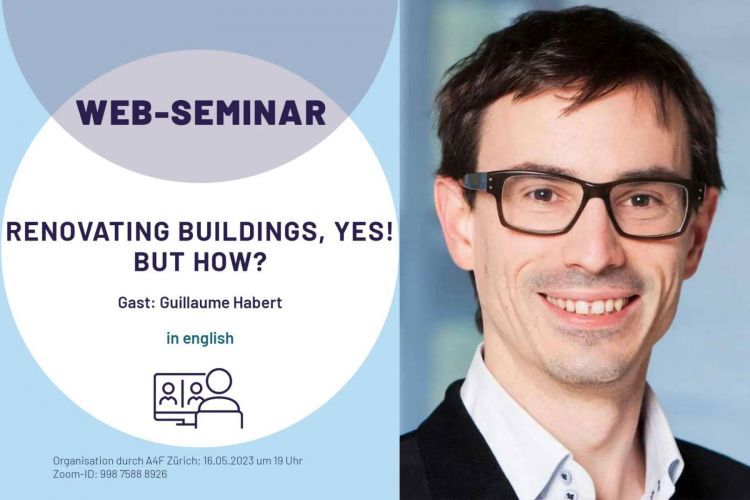Renovating buildings, yes! But how?
16. Mai 2023

Referat
architects for future A4F Zürich
16. Mai 2023, 19 Uhr
Buildings are responsible for 40% of the world's energy consumption, with Switzerland's buildings mainly using fossil-based energy sources, resulting in high carbon emissions. Approximately 74% of Switzerland's buildings were constructed before 1990 and are energy-inefficient, requiring renovation. Life cycle assessment and life cycle cost analysis can be performed to assess the CO2 emissions and costs of building renovation. However, many factors, including unknown future material replacements, climate changes, and heating set points, make it difficult to estimate the benefits of renovations. Research shows that replacing the fossil-based heating system with low-carbon sources like heat pumps or wood pellets is the most impactful part of building renovation. Using bio-based insulation materials also provides comparable insulation properties to conventional materials, but with less CO2 production and the ability to store carbon. Overall, renovation solutions that prioritize heating system replacement and bio-based insulation can be both cost-effective and climate-friendly.
Guillaume Habert holds a PhD in structural geology and has worked successively in geology, material sciences, civil engineering and sustainability sciences. Since 2012, he is associate professor for sustainable construction at ETH Zurich. He leads a group of scientists, engineers and architects that aim to ground sustainability in the disciplines of the built environment. The objective is to identify the relevant parameters that influence the environmental impacts of buildings at various scale in order to implement sustainable practices throughout the development of innovative strategies adapted to each actor. This involves interdisciplinary works and draws on Life Cycle Assessment, urban metabolism and material science.
